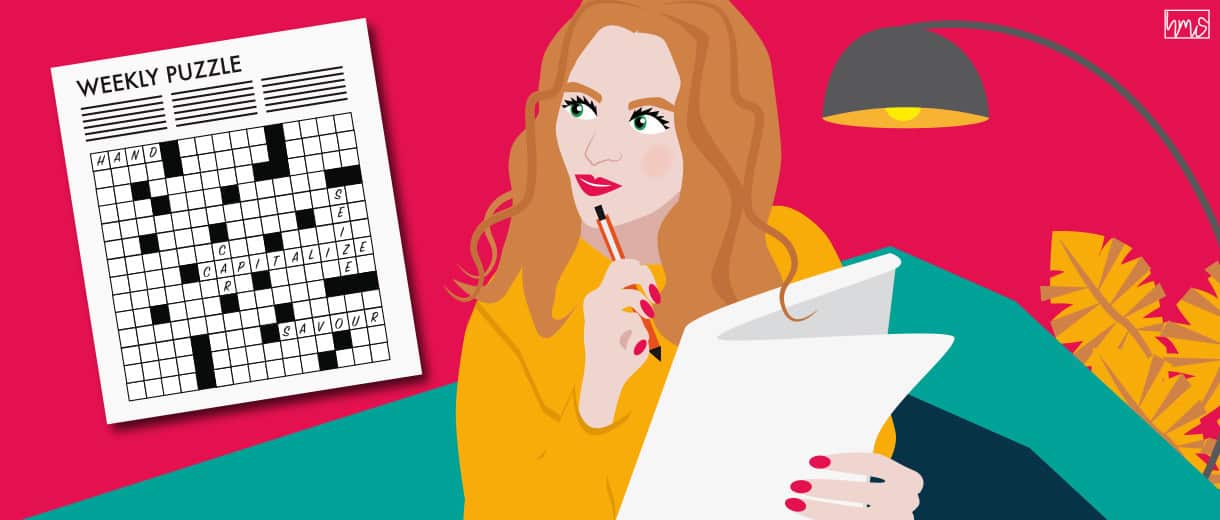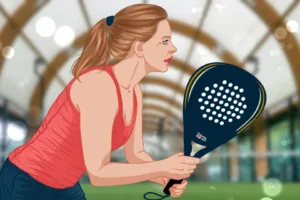Train Your Brain: Cross-Word Puzzles To The Rescue
Whether you are experiencing problems with your short-term memory or just want to find alternative ways to spend your free time, doing crossword puzzles and other brain training activities like memory cards, sudoku or jigsaw puzzles daily can significantly improve your brain functions, expanding your vocabulary and helping you relax and increase your concentration.
Use it or lose it!
Research conducted last year with more than 19,000 participants and led by the University of Exeter and King’s College London showed that more regularly adults aged 50 and over who frequently pick up a puzzle tended to have the short-term memory capacity of someone eight years their junior and the grammatical reasoning of someone 10 years younger. Memory-related activities not only strengthen the prevailing connections between our brain cells but also sets up new ones that can help increase our mental speed and boost our cognitive functions. This is beneficial to all age groups, from children whose minds are still malleable to adults whose memory and brain capacity slow down with ageing.
We’ve found that the more regularly people engage with puzzles such as crosswords and Sudoku, the sharper their performance is across a range of tasks assessing memory, attention and reasoning – Dr Anne Corbett, who led the research, said-. The improvements are particularly clear in the speed and accuracy of their performance. In some areas the improvement was quite dramatic on measures of problem-solving, people who regularly do these puzzles performed equivalent to an average of eight years younger compared to those who don’t. We can’t say that playing these puzzles necessarily reduces the risk of dementia in later life but this research supports previous findings that indicate regular use of word and number puzzles helps keep our brains working better for longer.
You can train your brain also by simply rehearsing your memory by recalling lyrics of songs and poems you know or even remembering the daily shopping list items. If you want to raise the difficulty level a bit, set your goals to learning a new language, solving ambitious math problems or doing any activity that will improve your fine motor skills, such as knitting, drawing, crocheting or painting.
Learning new words
Working on crossword puzzles can also help you learn new words as the creators of crosswords often use complicated, rare, and unused concepts with the purpose of raising the bar and leaving you ‘puzzled’. Searching for new terms and checking out the significance of unknown words in vocabulary helps you truly expand your linguistic patrimony. It is also useful to alternate between different types and brands of puzzles, as every creator has their own way and uses certain patterns. It goes without saying that doing crosswords in a foreign language is even more ambitious and helps you expand your vocabulary.
Improving the mood with a dose of dopamine
A sense of achievement and satisfaction, no matter how insignificant the task, always improves our spirit. Completing an activity of brain training – even as small as finishing a cross-word puzzle – successfully releases a dose of dopamine in our brain which makes us feel more confident, optimistic, and capable of greater things. When we feel good about ourselves, we tend to sleep better, be more relaxed and perform higher at all levels. It becomes a positive cycle that enhances the functions of our brain.
Enhancing your concentration and helping you relax and unwind
Solving a crossword puzzle requires our full concentration. Doing this exercise on a regular basis increases our capability to completely focus on a particular problem or task. Moreover, when we put our full focus on solving a task, we tend to forget about our daily problems and relax. Relaxing helps us unwind our body and mind and, again, release positive vibes all around.
Lowering the risk of dementia, Alzheimer’s and depression
Exercising your brain can also be helpful in avoiding brain disorders such as Alzheimer’s disease and dementia. A study by The Alzheimer’s Society found that training the brain through reasoning and problem-solving can help people over 60 to get on better with their daily activities. The researchers also saw improvements in reasoning and verbal learning skills in 50+ people.
A crossword puzzle a day keeps the doctors away
There is a grand list of contenders waiting to tease your brain. Online you can visit several websites to assess and train your cognitive skills with crossword puzzles, memory games, math exercises and other activities such as Lumosity, Cognifit, Mentem. However, if you are on a digital detox diet you might prefer sharping your mind with the help of magazines like Puzzler (the puzzle lover’s favourite for over 40 years) in which you can choose from a whopping selection of over 60 games in every issue from classic word searches to fun teasers. In case you want to work out the words and solve the puzzle by cracking mysterious codes, Codebreakers might be the answer. The magazine includes fiendishly addictive puzzles in which every letter in a typical crossword grid has been replaced by a number between 1 and 26. You can either work out the words to crack the code and solve the puzzle or try the terrific ‘Guest Puzzle’ and a selection of cryptograms.





